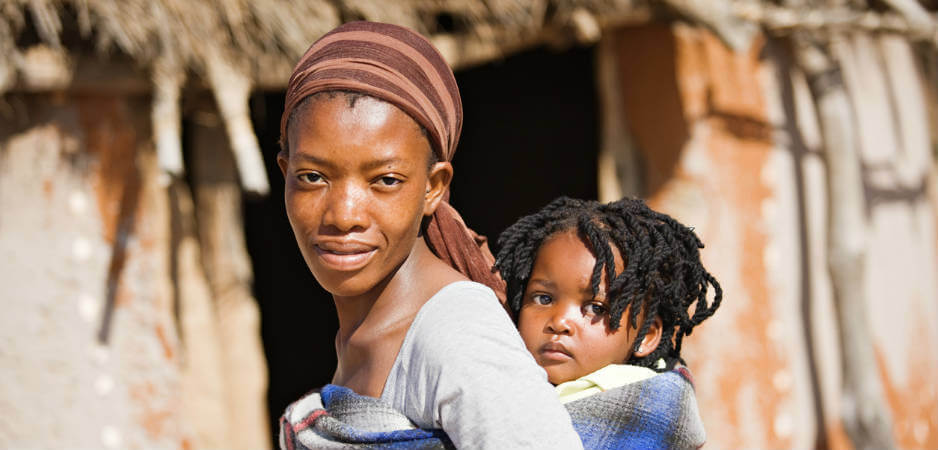Within the first five months in the White House, the Trump administration has begun to degrade the US stance on human rights.
Even before President Donald Trump took the oath of office in January 2017, Human Rights Watch (HRW) declared him a threat to human rights, citing his US presidential campaign as a “vivid illustration of politics of intolerance.” Despite widespread hope that Trump would pivot to a more moderate stance upon his transition from campaigning to governing that was not the case, and HRW’s warning rings chillingly true today. Looking back on the past five months of Trump’s policies reveals a dangerous pattern of de-prioritizing human rights, allowing his administration to have detrimental effects around the world and fundamentally change how the United States interacts with other countries.
January: The Fight Against Women’s Rights
The day after his inauguration, President Trump signed an executive order reinstating the Mexico City Policy — also known as the global gag rule — which blocks all federal funding for international nongovernmental organizations that provide, or even speak about, abortion services. Studies have shown the policy, which has been implemented several times before by Republican presidents, increases the need for abortions in areas like sub-Saharan Africa. The estimated $600 million gap in family planning services will put millions of women in life-threatening situations. Trump’s iteration of the Mexico City Policy will punish women in already challenging circumstances by taking away life-saving services.
The erosion of women’s health initiatives at the hands of the administration continued when it announced it would pull all funding for the United Nations Population Fund (UNFPA), a decision which will result in another $32.5 million loss in funding for family planning over 150 countries. In 2002, when the Bush administration cut funding for UNFPA, the organization stated the US funding would have “allowed the agency to prevent 2 million unwanted pregnancies and more than 77,000 infant and child deaths.” In an ever-escalating manner, the Trump administration introduced the Protecting Life in Global Health Assistance policy, in which $8.8 billion will be given to organizations as an incentive to restrict family panning services. The Trump administration is knowingly pushing a pro-life agenda that will reverse decades of progress on reproductive, maternal and child health, putting millions of women’s and children’s lives at risk.
February: Refugees and Travel Ban
On February 3, a federal judge blocked President Trump’s infamous travel ban. The executive order prevented anyone from seven majority-Muslim countries from entering the United States. Despite the president moving quickly to sign a revised version just three weeks later, a federal appeals court again blocked the executive order, citing the ban was “unconstitutional because it was deeply imbued with bias against Muslims.”
The president has also placed a ban on refugees while in office, suspending the country’s refugee program for 120 days, implementing an indefinite ban on Syrian refugees and introducing an annual refugee cap of 50,000-60,000 less than initially proposed by President Obama. President Trump’s xenophobic negligence to refugees and his intolerant immigration policies show a complete lack of human rights values and set a threatening precedent for discriminatory policies based on ethnicity, nationality and religion.
March: Disrespecting International Norms and Protections
Beyond enacting troubling policies, the Trump administration has shown a blatant disrespect for human rights norms, protections and organizations. In March of this year, for the first time since 1948, the United States boycotted the Inter-American Commission of Human Rights — the only regional human rights mechanism with jurisdiction over the US. On the schedule were three hearings that were expected to be deeply critical of the Trump administration, including the immigration travel ban, US immigration enforcement and the approval of the Dakota Access Pipeline.
Not two weeks after the no-show, Secretary of State Rex Tillerson threatened to withdraw from the United Nations Human Rights Council unless it undergoes “considerable reform.” Tillerson’s threat would mean the United States could give up its only power to influence human rights conversation across all UN members. The disrespect by the administration shows the world that the United States is not interested in working alongside others to strengthen organizations which are unified under human rights values but would rather move independently on issues that are solely in the United States’ best interests.
April: Arms Sales to Human Rights Violators
The Trump administration has taken a much more aggressive position on arms deals with countries around the world than previous administrations, even prioritizing sales to countries with documented human rights violations. Most concerning is the new $350 billion deal with Saudi Arabia, which was solidified during President Trump’s first overseas trip. Previously, President Obama blocked an arms deal with Saudi Arabia because of the kingdom’s human rights abuses in Yemen.
With tensions continuing to rise, Trump’s arms sale could exponentially ignite tensions between the two countries. President Trump has also been working on a major sale of arms and F-16 fighter jets to Bahrain and has stated his willingness to make deals in the future to expand US military support to Egypt, Israel and the United Arab Emirates. Trump hopes an increase in US military engagement in the Middle East will deliver positive political outcomes, but a large influx of arms will instead increase the already high number of human rights abuses.
May: Canceling Human Rights
Since the Clinton administration, every White House staff has included a member focused on coordinating, developing and implementing government policy related to human rights and humanitarian relief. In May, the role of the special assistant to the president for multilateral affairs and human rights under President Obama was changed to special assistant for international organizations and alliances, very clearly removing specific human rights language from the job title. The new hire, Garry Hall, has no background in human rights policy and little knowledge of how to handle the position’s previous obligations to issue reports and determinations related to human rights. With his announcement of removing a human rights position in his administration, President Trump is sending a clear sign that human rights are not a priority.
Within the first five months in the White House, the Trump administration has begun to degrade the US stance on human rights around the world. These policies and decisions will have long-lasting repercussions for decades to come as they not only defund programs, but also remove fundamental human rights structures. President Trump is a threat to human rights around the world, and, at the pace he has been going, things will get a lot worse before the United States and the world can begin to rebuild.
*[Young Professionals in Foreign Policy is a partner institution of Fair Observer.]
The views expressed in this article are the author’s own and do not necessarily reflect Fair Observer’s editorial policy.
Photo Credit: poco_bw
Support Fair Observer
We rely on your support for our independence, diversity and quality.
For more than 10 years, Fair Observer has been free, fair and independent. No billionaire owns us, no advertisers control us. We are a reader-supported nonprofit. Unlike many other publications, we keep our content free for readers regardless of where they live or whether they can afford to pay. We have no paywalls and no ads.
In the post-truth era of fake news, echo chambers and filter bubbles, we publish a plurality of perspectives from around the world. Anyone can publish with us, but everyone goes through a rigorous editorial process. So, you get fact-checked, well-reasoned content instead of noise.
We publish 2,500+ voices from 90+ countries. We also conduct education and training programs
on subjects ranging from digital media and journalism to writing and critical thinking. This
doesn’t come cheap. Servers, editors, trainers and web developers cost
money.
Please consider supporting us on a regular basis as a recurring donor or a
sustaining member.
Will you support FO’s journalism?
We rely on your support for our independence, diversity and quality.






